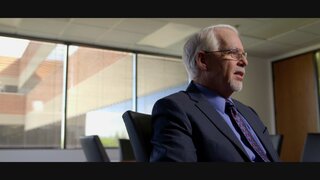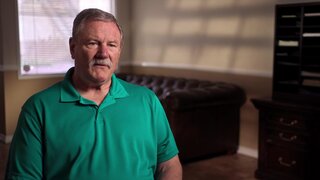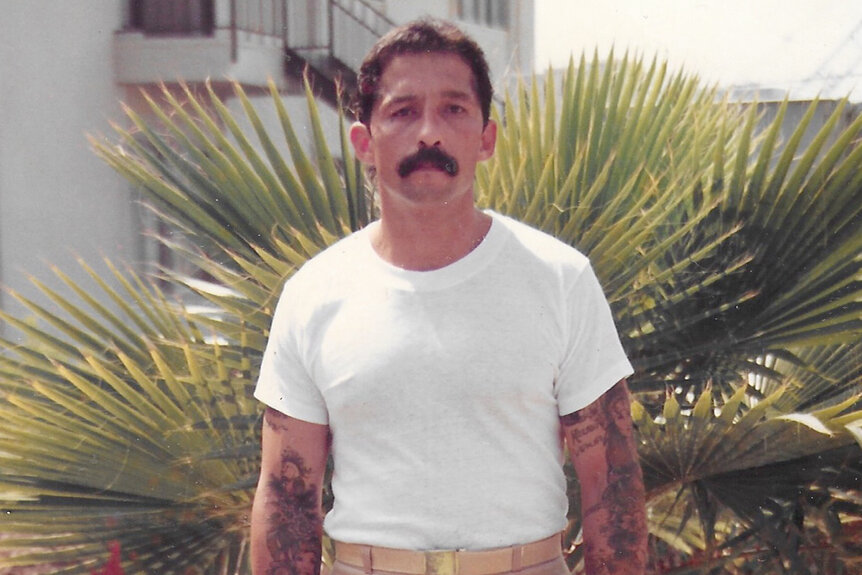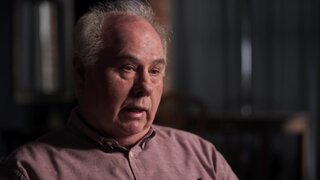Create a free profile to get unlimited access to exclusive videos, breaking news, sweepstakes, and more!
Who Killed Jimmy Casino, A Topless Bar Owner In Orange County?
DNA left by a rapist proves key in solving a 20-year-old Orange County cold case murder.
One day after New Year’s revelers rang in 1987, a desperate 911 call was dialed from an affluent area of Buena Park, California.
The caller, a 22-year-old woman, had been raped. Her boyfriend, Jimmy Casino, 48, had been shot and killed.
“We were the first homicide in the county that year,” Robin Lindley, a retired investigator with the Buena Park Police, told “The Real Murders of Orange County,” streaming now on Oxygen.com. “You could see the house was disheveled and had been ransacked.”
Along with credit cards, fur coats, and jewelry, two cars had been stolen. The crime scene was processed and evidence preserved in order to catch the killers. Who pumped three bullets into Casino? It would take decades to find the answer.
The couple, the victim’s girlfriend explained, had gone to a movie with Casino’s son, Shane, who they dropped off at a friend’s house. When they returned home two masked men inside with guns ambushed them. After being tied up and raped, Casino’s girlfriend freed herself and ran to a neighbor’s house and called 911.
Detectives learned their murder victim was born James Stockwell. He was a businessman who lived large and was “100 percent hustle and grid,” said Dan Wagner, former prosecutor, Orange County District Attorney. His love of flash led to his rebranding himself Jimmy Casino.
Friends knew Casino as a good guy and a devoted dad. But in conservative Orange County his business enterprises did raise eyebrows, particularly an establishment called the Mustang.
The business went from being a restaurant to the Mustang Topless Theater, which raked in $150,000 a month and had ties to organized crime, reported the Los Angeles Times.
“When you see that kind of money that’s being made there that’s always going to be very attractive to organized crime,” said Wagner.
Detectives looked to the victim’s background for possible clues to who would want him dead. They learned that he’d hustled some people and had outstanding debts.
Five days after the murder, Joseph Orozco and Mark Corbett, two men with mob ties who were Mustang clients, were busted when they tried use Casino’s stolen credit cards at a department store about 50 miles from the crime scene.
The men said they’d stumbled upon the credit cards in a parking lot. After a thorough investigation and search of the suspect’s homes, detectives found nothing to directly link them to Casino’s killing. They were released.
While investigators were unable to tie Orozco and Corbett to the crime, they considered other individuals in their orbit. Richard Morris was another individual in the mix. While under suspicion of a robbery in Pasadena, Morris told police he had information on a murder in Orange County. He said Corbett told him that he was paid $10,000 to kill a guy. When detectives tried to interview Corbett again he’d left the state and couldn’t be found.
Despite the Mustang Topless Theater roping in cash, Casino wasn’t able to pay off his debts. It turned out Casino owed Bill Carroll, who had connections to the Mustang and the mob, said Wagner, “at least a couple hundred thousand” dollars.
Carroll emerged as a possible suspect, but in May 1987 there was a twist in the case. Carroll was shot three times in the back of the head in a Costa Mesa parking lot and left for dead. He survived but was blinded in the attempted murder. He refused to speak to authorities about the Casino case.
Detectives believed the two shootings — Casino and Carroll — were related to Orange County organized crime. Did Carroll put the hit out on Casino because he owed him money? If so, who put the hit out on Carroll?
The question loomed large. Then The Mustang burned down in January 1988.Two months later, a Mustang bouncer was found dead in an Irvine industrial complex parking lot.
In October 1988, Carroll reached out to authorities. He told them the people who shot him were hitmen for the mob, confirming officials’ suspicions. But identifying Casino’s killers remained frustratingly elusive.
In 2008, Lindley got a call from the Orange County DA’s office that there was a DNA match on evidence from Casino’s girlfriend’s rape kit. The match was to Richard Morris, who’d been interviewed early on in the case and said Corbett bragged about killing a man in Orange County.
Morris, who was living in Hawaii, was arrested for driving under the influence. Because of the DUI, a sample of his DNA was taken and put into a DNA database. “This is what we call a cold case hit,” said Wagner.
Morris was taken into custody in Honolulu and then returned to California, where he was charged for the home invasion and murder of Jimmy Casino. At the trial, the testimony of Casino’s girlfriend was invaluable, officials told producers.
The jury deliberated for less than and day and found Morris, 59, guilty of murder in the first degree. It found that he was guilty of the special circumstance of murder in the commission of a robbery and murder in the commission of a rape
“It's ironic that the rape kit is what brought him down,” said KFWB former reporter Sharon Katchen, adding that “he left behind the evidence.”
Morris was sentenced to life in prison without the chance of parole. The identity of the second masked man who helped carry out the attack and murder remains a question. Investigators have theories, but acknowledge they may never be confirmed.
To learn more about the case watch, “The Real Murders of Orange County,” streaming now on Oxygen.com.























